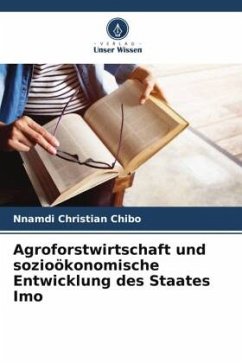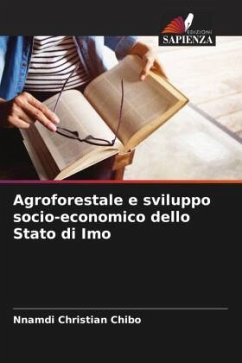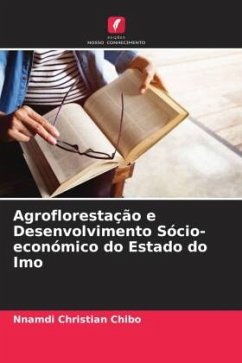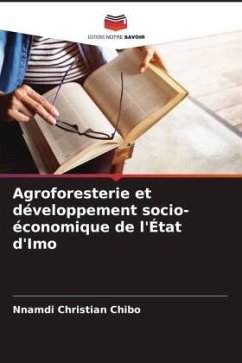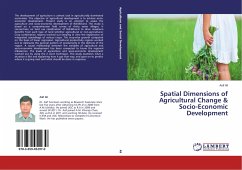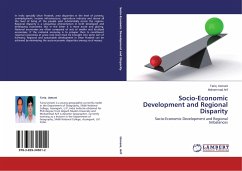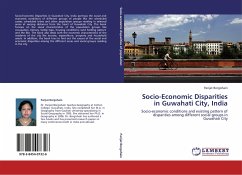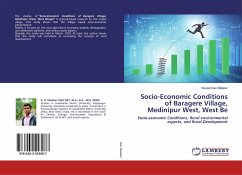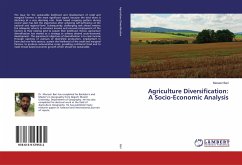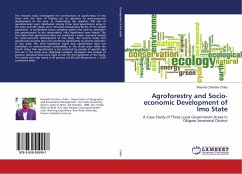
Agroforestry and Socio-economic Development of Imo State
A Case Study of Three Local Government Areas in Okigwe Senatorial District
Versandkostenfrei!
Versandfertig in 6-10 Tagen
41,99 €
inkl. MwSt.

PAYBACK Punkte
21 °P sammeln!
The research study investigated the contributions of agroforestry in Imo State with the view of finding out its relevance to socio-economic development of the area. In undertaking this research, 450 sets of questionnaires were distributed among three local government areas in the state and 433 copies were retrieved representing 96.2% of the sample population. A randomized quota sampling system was used to administer the questionnaire to the respondents. Four hypotheses were tested. The first states that agroforestry does not constitute a major economic activity for socio-economic development o...
The research study investigated the contributions of agroforestry in Imo State with the view of finding out its relevance to socio-economic development of the area. In undertaking this research, 450 sets of questionnaires were distributed among three local government areas in the state and 433 copies were retrieved representing 96.2% of the sample population. A randomized quota sampling system was used to administer the questionnaire to the respondents. Four hypotheses were tested. The first states that agroforestry does not constitute a major economic activity for socio-economic development of Imo State, the second states that agroforestry practice does not contribute significantly to poverty reduction in Imo state; the third hypothesis states that agroforestry does not contribute to environmental sustainability in the study area; while the fourth states that agroforestry is not practiced by people of specific age and sex in the study area. Regression analysis, chi-square and analysis of variance statistical tools were used to test for the hypothesis of the study. The results were also tested at 95 percent (t 0.05) and 99 percent (t = 0.01) confidence limits.



